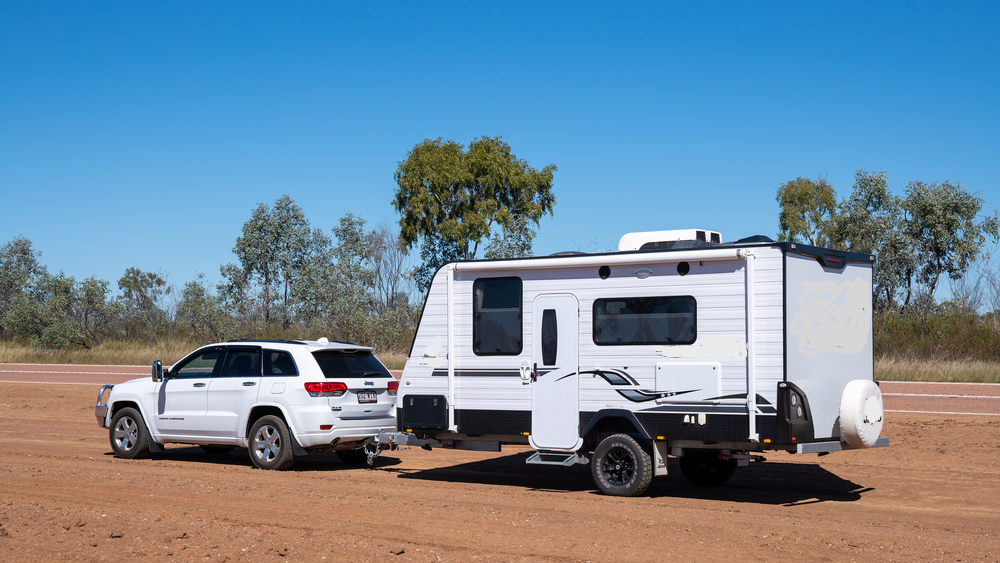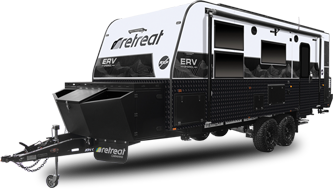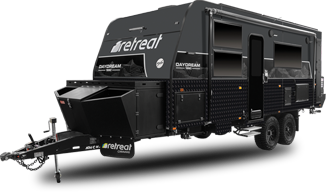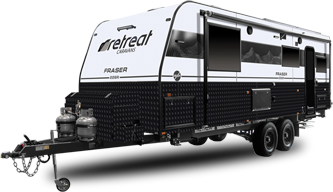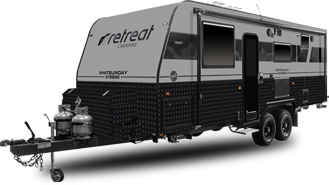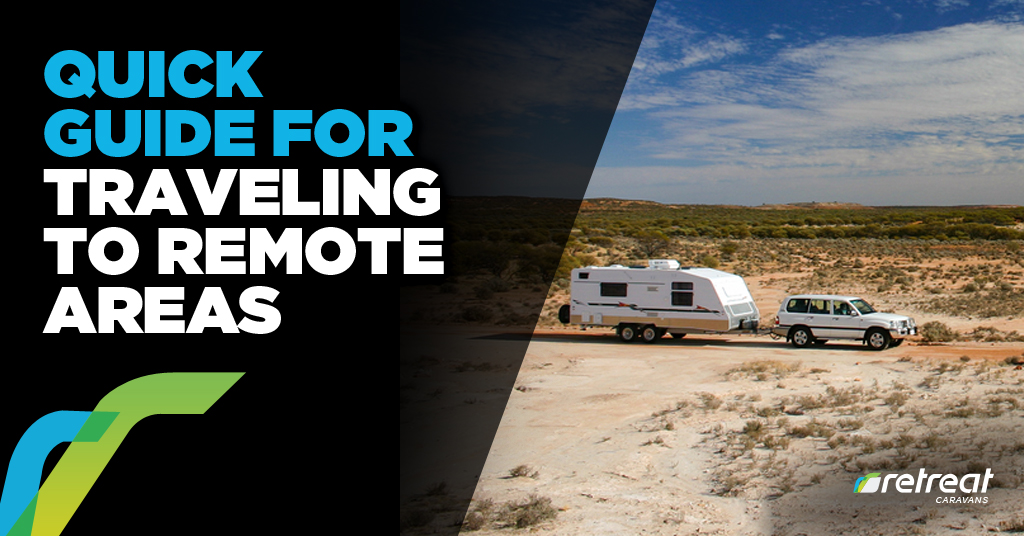
Quick Guide For Traveling To Remote Areas
Are you planning to pack up the caravan and head off to a remote area to escape the city for a while? Is this the first time you have decided to check out a remote area in the middle of nowhere? Do you need to know the best way to prepare for such an epic trip?
Here at Retreat Caravans, we want you to not only embark on the adventure of a lifetime, but we also want to make sure that you are well prepared for any obstacles or challenges that might come your way!
The thought of leaving home to explore a whole new place is definitely exciting, but what happens if you come across a mishap or have an accident along the way and things don’t quite work out as planned? That’s why preparation is the key.
With all this in mind, we have developed a quick guide for those planning to travel to remote places! Some of the topics we will be covering include the following:
- Bring the basics
- Identify any hazards
- Don’t panic
- Always take breaks
- Safe vehicle access
- Inform others of your travel itinerary
- Maintain your vehicle well
So please keep reading below to learn how to best prepare yourself for remote travelling!
1). Bring The Basics
Driving in remote Australia means that you’ll need to equip yourself with all the necessary tools and gadgets along the way. Some handy items to bring along include the following:
- A detailed and current map of the area/s and/or a reliable GPS.
- A compass, matches/lighter, and fire-lighter blocks.
- A LOT of drinking water (allow at least one litre per person per day)
- Enough food and snacks for each person coming along on the trip.
- A medicine kit including bandages, band-aids, antiseptic creams, sunblock, a broad-spectrum antibiotic, insect repellent, paracetamol, or other medication you believe is necessary.
- A complete set of tools that include two jacks and two spare tyres, spare gloves, spare fan belt, spare fuses, a long-handled shovel, a torch and plenty of batteries!
- A radio that picks up on at least one station so that you can remain up to date with weather conditions. Make sure to bring spare batteries and/or power banks for your other communication devices.
- A loud whistle.
It is also worth noting that solar-powered caravans are a great investment for remote travel for extended periods of time. This is because they will be able to give you a consistent and steady supply of power in case you need it and virtually enjoy full power throughout your trip.
2). Identify Any Hazards
We all know that Australia can be home to extreme weather conditions especially in remote areas. More importantly, if you plan to travel roads that haven’t really been travelled before, you’ll need to consider the hazards such as bushfire conditions, road conditions, weather conditions, and much more. Make sure to do research beforehand or talk to people who are more familiar with the lay of the land you are travelling to.
3). Don’t Panic
Always remember that the first rule of survival is to never panic. Extreme climate changes can be quite dangerous and might leave you stranded if you’re not careful. Travelling in remote areas means that you should be as careful as possible, so start by identifying what the possible risks are. If things do go wrong, you won’t need to panic if you have done the appropriate research and preparation.
4). Always Take Breaks
Driving for a long time can lead to driver fatigue. What’s more, navigating unknown areas can be quite tiring to keep up with! With that in mind, always remember to take a couple of breaks here and there, give yourself a power nap, and energise yourself before you continue with the rest of your trip. Also, don’t forget to keep hydrated along the way!
5). Safe Vehicle Access
When driving, make sure you stay on public access tracks, campgrounds, or parking areas. This helps you to avoid getting stranded off-track, which can be very dangerous. Do not access mining and petroleum infrastructure, do not camp on river banks or low lying areas in case of flash flooding, do not camp under trees that can drop limbs, and do not drive on salt lakes. Make sure to do a little research on which roads you should be accessing.
6). Inform Others Of Your Travel Itinerary
Always make sure to inform a responsible person of your travel plans and itinerary. Arrange regular calls or text/social media updates and create emergency plans in case you do not reach your designated location within the timeframe you originally planned.
Part of this is also obtaining permission from landholders if you plan to travel on private or Aboriginal lands. Or, you can choose to travel with others so you stay in contact with other people. This means that if you experience a breakdown or accident, this can help you curb expensive outside assistance.
7). Maintain Your Vehicle Well
Of course, how can you travel to a remote place if your vehicle is not in tip-top shape? Make sure that your travel vehicle is well-maintained, serviced, and in optimum condition for the road. If you plan to travel through sand, make sure that your vehicle has enough high ground clearance to do so.
Additionally, you’ll need to make sure that you know how to operate your vehicle’s transmission before you leave. Make sure to inspect your vehicle by checking tyre pressures and fluid levels, cleaning air filters, and looking for possible leaks or damage to your cables and hoses. Also, make sure you remove any dry vegetation that may have accumulated as this can possibly catch on fire.
Summary
Traveling to remote areas means that you’ll need to be prepared for any circumstances you may be confronted with. By practising things such as identifying hazards and informing others of your travel plans, a remote road trip will definitely be best enjoyed to the fullest!
If you are looking for the best caravans in Australia for your next big adventure, you can’t go past Retreat Caravans. Please check out our full range of caravans below, all carefully designed with you in mind:


